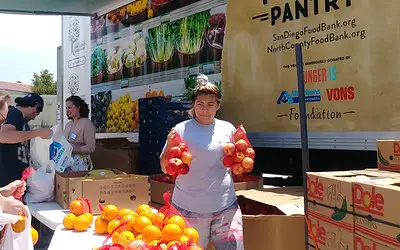A new report by non-profit Trellis Company reveals that food insecurity among college students is caused by a host of factors along with insufficient money to buy the food.
Titled “Studying on Empty: A Qualitative Study of Low Food Security Among College Students,” the report found that factors like insufficient time, persistent stress, and lack of information are causing food insecurity among students.
Researchers analyzed the changing food security patterns of at least 72 current students for nine months in a campus setting and found it was a fluid issue for them.
Students who experience food insecurity are at greater risk of their academic success being affected. This finding resonates with another study that claims lack of access to a reliable supply of nutritious food can make a student fail assignments and exams, withdraw from classes or the university, score lower grade points and even stay away from such important career opportunities as internships.
Various situations that students face during college time like employment disruptions, family crises, loss of financial aid among others can lead to lower food security.
“Students also shared that their academic performance mirrored their level of food security,” said Jeff Webster, Trellis’ Director of Research.
“The student voices captured in this study speak to the power of unexpected events and the difficult prioritizations students make each day that affect their food security.”
A study conducted by researchers from the University of Iowa and Temple University found that out of 30,000 college students nationally, approximately half of two-year and four-year students are food insecure. Another 2018 study found that 36 percent of college students experience hunger.
A similar report by the Government Accountability Office (GAO) found that 30 percent of college students today are food insecure.
The Trellis report found a positive impact on food security when a student has access to financial aid, gets monetary support or accommodation from family or romantic partners, gets text-books at lower-price or finds living wage jobs with easy commutes.
On a positive note, students who become food secure witnessed improvement in the quality of life including increased sleep, reduced stress, and higher levels of energy.
California College Starts Free Lunch Vouchers, Market to Combat Food Insecurity

